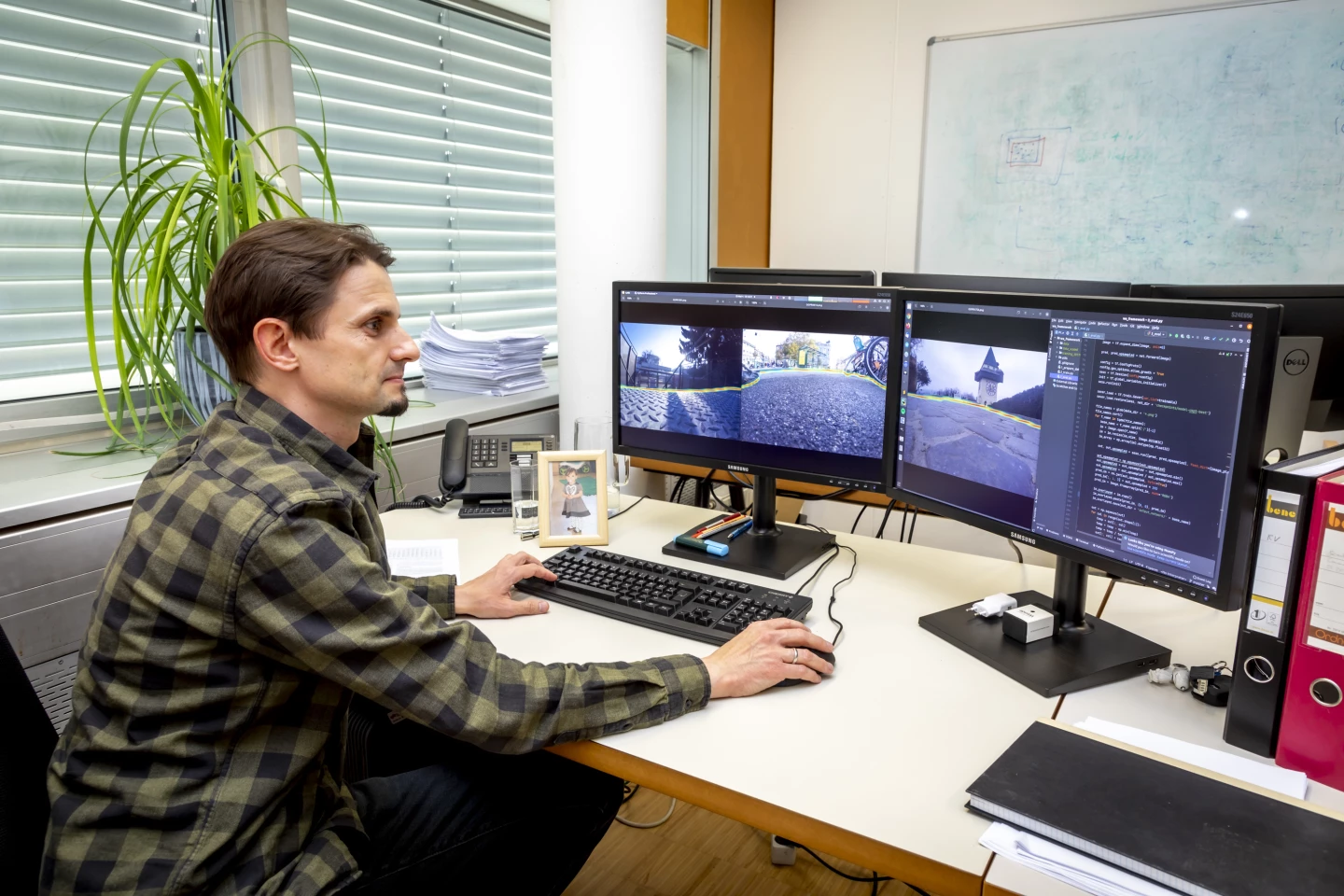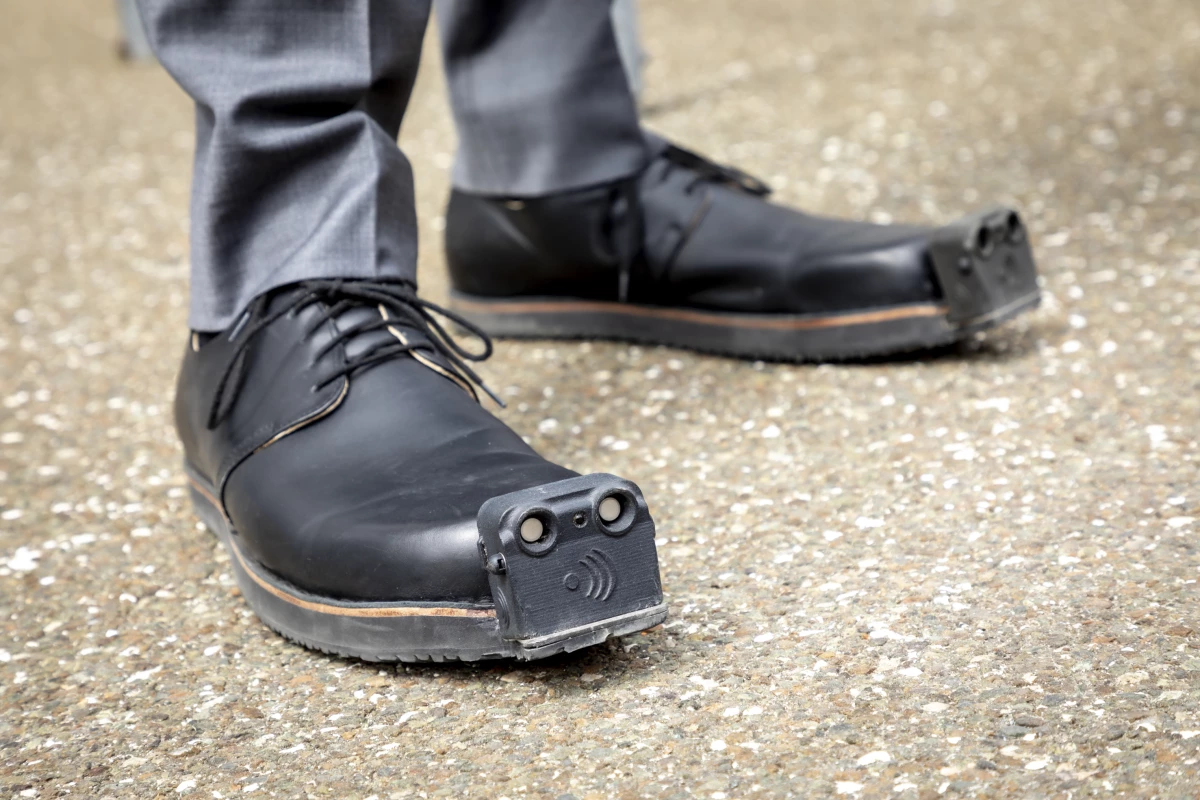Manufactured by Austrian startup Tec-Innovation, the InnoMake shoe uses ultrasound sensors to warn blind users of obstacles in their path. The footwear may soon become even more capable, though, thanks to integrated cameras.
Like the Indian-designed Le Chal shoe, each InnoMake shoe features a toe-mounted proximity sensing module that emits ultrasound pulses, then receives the echoes of those pulses off of objects lying ahead.
In this way, it can detect potential obstacles located up to 4 meters (13 ft) in front of the user. That person is warned via a haptic feedback system that causes the shoe to buzz their foot, along with an audible alert sounded on a Bluetooth-linked smartphone. Additionally, LEDs on each sensor can be set to flash whenever an obstacle is detected.
The shoe was designed in partnership with Austria's Graz University of Technology. Now, scientists at that institution are developing a camera-equipped version of the shoe's removable sensor module. Output from the camera is analyzed by deep-learning algorithms, to two ends.

First of all, the video is used to complement the ultrasound system, ensuring that the path ahead is obstacle-free. Additionally, when an obstacle is detected, the video is utilized to determine if it's something that the user should step up over (like a rock), avoid stepping down into (like a pothole), or avoid running into (like a wall). They're warned accordingly.
Plans also call for the app-connected new sensor units to share data via the internet. In this way, "obstacle maps" of different cities could be created, providing blind people with an advance warning when approaching the locations of known hazards.
There's currently no word on when the camera-equipped InnoMake shoes may be available. In the meantime, interested parties can purchase the existing version from the company website for €3,200 (about US$3,840) a pair.
Source: TU Graz





